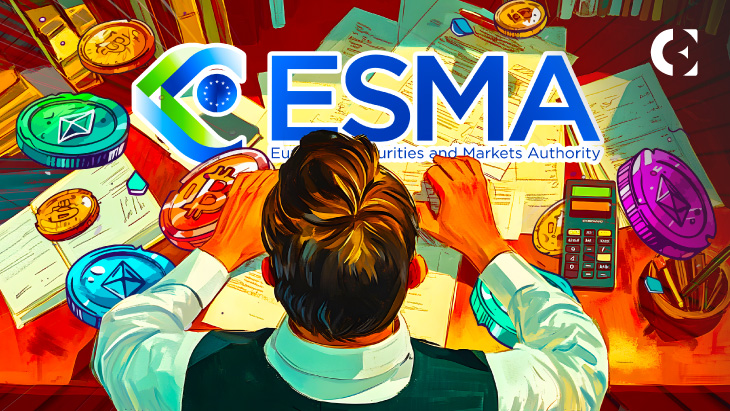- ESMA responds to proposed MiCA RTS amendments, emphasizing policy goals and legal limits.
- Cybersecurity audits and reputation checks were suggested for crypto service providers.
- The EU aims to reduce the securities settlement to T+1, requiring significant market investments.
The European Securities and Markets Authority (ESMA) has addressed the European Commission’s proposed changes to the Markets in Crypto-Assets Regulation (MiCA) Regulatory Technical Standards (RTS). ESMA pointed out certain legal issues raised by the Commission and reiterated the policy objectives of the original proposal.
The response covers two key areas of the RTS. The first specifies that financial entities must include information in a notification of their intention to provide crypto-asset services. The second focuses on the concerned applications that crypto-asset service providers (CASPs) must submit to gain authorization. These standards aim to ensure thorough evaluations of crypto-asset service providers entering the European market to strengthen the market and also to protect investors.
ESMA’s Recommendations
ESMA recommended that the European Commission make further amendments to the MiCA regulation. Specifically, they suggested requiring applicant CASPs and financial entities to disclose the results of external cybersecurity audits.
ESMA also proposed reviewing the reputations of management members, particularly regarding financial services law and anti-money laundering, and expanding these checks to include fraud and professional liability.
These proposed amendments are in response to ESMA’s final report on the draft RTS, released on March 25, 2024. The Commission informed ESMA in September that it planned to adopt two of the standards with changes and asked ESMA to draft a new RTS based on those adjustments.
Read also: Decoding MiCAR: A Comprehensive Guide to the EU’s New Crypto Asset Rules
ESMA has now sent its response to the European Commission, the European Parliament, and the European Council. The Commission can adopt or reject the proposed RTS, while the European Parliament and the Council have three months to give their feedback.
In parallel, the European Union is working to reduce the securities settlement cycle from two days (T+2) to one day (T+1). ESMA is addressing the challenges involved, such as harmonization and system modernization, which would require major investments. Further, it has collaborated with the European Central Bank to coordinate the transition effectively.
Disclaimer: The information presented in this article is for informational and educational purposes only. The article does not constitute financial advice or advice of any kind. Coin Edition is not responsible for any losses incurred as a result of the utilization of content, products, or services mentioned. Readers are advised to exercise caution before taking any action related to the company.







